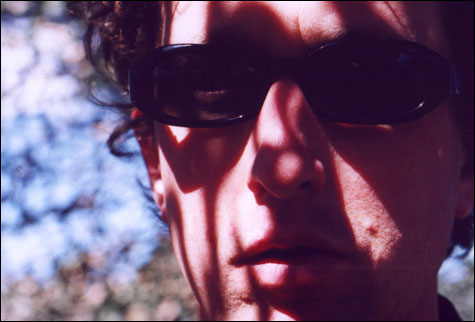
NEW ZEALAND INFLUENCE: The countless kids who recorded four-track pop in their bedrooms in the ’80s and ’90s owe a debt to Kilgour and the Clean. |
David Kilgour likes to claim he’s not a very driven fellow. At least not anymore. But his discography with the Clean, the influential New Zealand indie-pop band he’s helmed since the late ’70s, and on his own (he’s released seven solo albums) suggests otherwise.“The Clean were actually really quite ambitious,” Kilgour, now 46, told me over the phone from a tour stop in San Francisco. “I’m not nearly as ambitious now. I’m certainly not touring America to try and break my career here and sell millions of records. Every time I put a record out, I really wonder if anyone’s gonna put the next one out. So I’m just surprised that I’m still here as a middle-aged man, doing this.”
Not only is Kilgour still performing, as he’s done regularly since he went solo in ’91, but following a 10-year hiatus the Clean reconvened in 2000 after the Dunedin Arts Council persuaded the band to perform at a festival celebrating the history of New Zealand music. They were without a label until Merge lent them $1000 to finish the album that became 2002’s Getaway.
By last fall, however, Kilgour was back at his solo career, with a new touring band, the Heavy Eights (they played T.T. the Bear’s Place in November), in support of a new release, The Far Now (Merge). It’s a sublimely textured work that shows no sign of decline. Although the disc, like most of Kilgour’s previous releases, slipped under the commercial radar here in the US, it was one of 2007’s unheralded gems. And now the guitarist/songwriter, who founded the Clean with his brother, drummer/singer Hamish Kilgour, and bassist Robert Scott in their home town of Dunedin, is talking about recording a new Clean album. “With the Clean, we tend to get together and extemporize on the spot. In the old days, we used to bring in finished songs. Now we just seem to have this chemistry as musicians and as old friends. It’s hard to get that with musicians and with bands.”
Listening to the Clean’s seminal 2003 double-disc compilation, Anthology (Merge), makes clear the connection between the open-chorded, reverb-drenched approach that has come to define the “New Zealand Sound” and the American underground pop sounds of Yo La Tengo, Luna, and Small Factory, to name three. Whether they knew it or not, countless kids who holed up in their bedrooms playing homemade pop songs into a four-track machine during the ’80s and ’90s owe a debt to the Clean.
And though punk helped shape the Clean’s fast-and-loose DIY ethos, both Kilgour brothers were influenced by American rock. “There’s a lot of psychedelic influence in the Clean,” David explains. “For me there’s a lot of ’60s and early-’70s Californian psychedelic music and a bit of old ’60s garage stuff that we really loved as kids.”
Back when the Clean were embarking on their “Getaway” reunion tour, Hamish told me that the band felt far less kinship with the late-’70s/early-’80s punk scene than many might have believed. “We identified with punk but the Clean, I think right from the start, had a pop element. It was also a reaction against what was going on in New Zealand — there was a pretty violent punk and post-punk scene, with skinheads and all of that stuff. We definitely worked against that. We created music we felt had an energy to it but that was also very positive.”
David points to his brother’s elemental drumming style as intrinsic to the group’s enduring appeal: “It’s the way Hamish beats his drums. I think the Clean are a primitive band — there’s something very caveman about us or something, when we play live anyway.” Here he pauses. “But I think we just excited people. No one was really writing original music at the time, I suppose, and we showed some people that you could do it — that you could write okay music and make records.”